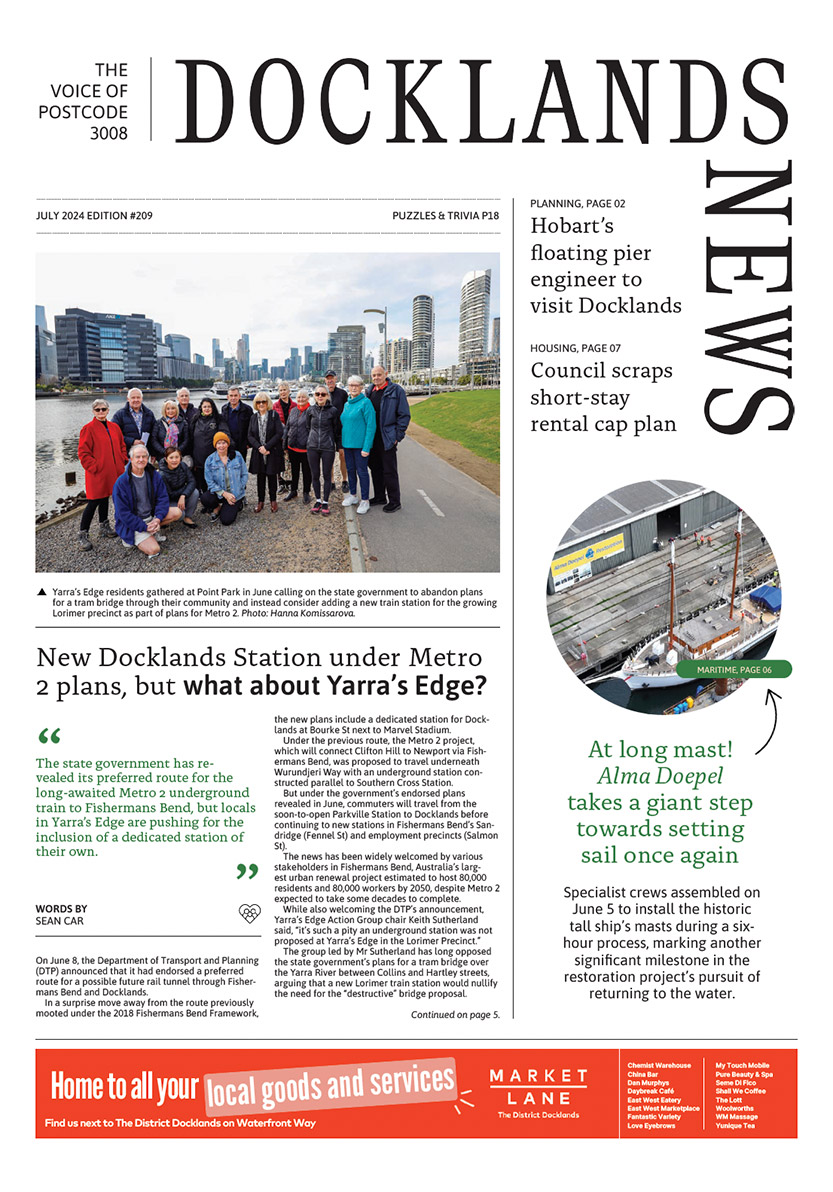Quality, relationships and nature: the Gowrie way
As you’ll find when visiting their second-level location at Seafarer Lane, gravitating around an enormous, fully established garden and playground, Gowrie at The Harbour is anything but your standard childcare centre.
With an emphasis on connecting children with the world around them, Gowrie’s ethos is a simple one: every interaction with a child is a chance to educate.
“Quality education is a rich and empowering environment for young children, where they have a lot of choice and autonomy,” said Gowrie at The Harbour manager, Rukmini Bose-Rahman.
“It is about a variety and diverse way in which they can learn. Every child is an individual and we cater an inclusive environment so they can learn to their optimal level.”
Gowrie at The Harbour run an indoor-outdoor program all day, every day regardless of the weather, as they see a child’s environment as one of the key tools in early childhood education.
According to Gowrie educational leader Kristie Dowell, the growth and development of a child’s brain in their first five years was unlike that of any other period in their life.
That is where the expertise and training of their 50-strong staff are put into practice, providing a safe and nurturing environment for all children.
“Gowrie as an organisation uses evidence-based methodology for teaching young children. Language as one of our areas of priority focus as evidence suggests the richer the child’s language exposure is at an early age, the better academic success they will have right throughout their life,” Ms Dowell said.
“It isn’t about teaching ABCs and one to 10s, it’s about having an environment that is rich with opportunities for vocabulary and varying types of language. Our educators are trained in using a few different strategies that enhance that.”
“All of our thinking will start with that language base and how we can introduce more words and create two-way conversations.”
According to Ms Dowell, Gowrie use an Abecedarian approach facilitated by training from the University of Melbourne which they then train their educators in.
The Abecedarian approach has a 40-year history of evidence and research and is used extensively across the globe.
Along with the capacity for 135 children across nine rooms, you will find a full-time, fully qualified chef, preparing a range of meals ranging from the children’s favourites like fish tacos and lasagne, to vegetarian curries.
“It is very child centred, as our chef makes it so the children can serve themselves and choose which part of the meal they’d prefer,” Ms Dowell said.
“It isn’t just a meal being presented to the child, they are part of the process and given utensils to serve themselves. With meals and throughout our whole program, there is a lot of autonomy given to the children.”
According to Ms Bose-Rahman, Gowrie welcomed a host of new local families in 2020 with a range of culturally diverse backgrounds.
So much so, they have 15 different languages spoken among their staff, enabling children of all backgrounds to be matched with an educator who can speak with them in their home language.
The team at Gowrie have been working closely with La Trobe University to train their educators in teaching children on the spectrum, focusing a program that is about target and explicit teaching.
With many of the children at Gowrie locals to the area, Ms Dowell and her team have placed a huge level of importance on teaching through sense and touch, utilising their outdoor space at the centre, as well as regular excursions into the community.
“With such an urbanised environment, we are so pleased to be able to be able to provide a space like this for the children and instil a sense of responsibility for the environment that is outside of their own little world,” Ms Dowell said.
“These children have a huge burden on their shoulders to be the catalysts for change. We try to instil a love of being here without the anxiety of why we need to care for our environment. From their perspective, it has been amazing because we regularly have owls or currawongs come to visit, that’s the value of caring for it [the environment] for them.”
Gowrie at The Harbour has a longstanding partnership with the Docklands Community Garden lasting more than 10 years, allowing the children to interact with volunteers and develop crucial social skills at an early age.
“Research shows that risk adverse children are subject to several detrimental long-term impacts. It is about believing that children are capable and have an understanding of what their own limitations are and how to push themselves to the next stage of their potential without hurting themselves,” Ms Dowell said •
For more information, visit gowrievictoria.org.au/childrens-programs/docklands

Neighbourhood Watch and RACV launch apartment crime prevention program








 Download the Latest Edition
Download the Latest Edition